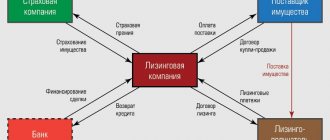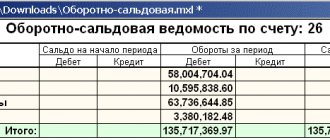Utility subscriber
The leased property is the property of the lessor. That is, it is he who acts as a subscriber to public services. This conclusion can be drawn from the provisions of Article 608, paragraph 2 of Article 539 and Article 548 of the Civil Code of the Russian Federation.
At the same time, with regard to the supply of electricity, the legislation does not prohibit the energy supply organization from supplying energy not only to the subscriber (lessor), but also to other organizations dependent on it (for example, tenants). That is, the subscriber (lessor), with the consent of the energy supply organization, has the right to transfer the energy received by him through the connected network to the sub-subscriber (tenant). And the sub-subscriber (tenant) must be able to receive energy through special equipment, as well as connect to the power grid of the subscriber (lessor).
This procedure follows from Article 545 of the Civil Code of the Russian Federation. In general, it also applies to relations related to the supply of other public services (heat, gas, water, etc.) (Article 548 of the Civil Code of the Russian Federation).
The Civil Code of the Russian Federation does not establish any other requirements other than those indicated above. This allows the tenant to choose between various ways of formalizing relations for receiving utilities and their subsequent payment.
Calculation methods
Payments for utility services can be organized in the following ways:
- the tenant pays the landlord utilities as part of the rent;
- the tenant, in a separate payment (on a separate invoice), compensates the landlord for the cost of utilities;
- the tenant enters into an intermediary agreement with the landlord for the purchase of utilities;
- The tenant directly enters into an agreement with the utility services for the supply of electricity. This payment option is not applicable for water supply payment services.
Blog
In today’s article, I will touch on a “sore” topic for a huge number of accountants of management companies and homeowners associations, namely, whether funds received from premises owners (consumers) to pay for utilities are included in the tax base under the simplified tax system. The topic is now oh, so relevant, since the State Duma has prepared the next amendments to the Tax Code, which will come into force on January 1, 2020.
Let me start with the fact that the whole “war” took place and is happening due to the fact that, according to clause 38 of the Rules for the provision of utility services, approved by Decree of the Government of the Russian Federation of May 6, 2011 No. 354 (hereinafter referred to as the Rules), the amount of payment for utility services is calculated according to tariffs for resource supplying organizations. Simply put, if a management company bought a cubic meter of cold water from RSO for 30 rubles, then it can only sell this cubic meter to a consumer for 30 rubles, which means there is no profit
.
If the management company operates on a common taxation system
(hereinafter referred to as OSNO), then in most cases (I will not consider the opposite situation in this article) in relation to utilities
there is no added value
, and therefore no VAT,
as well as profit
and, as a consequence, tax at a profit.
In a situation where the management company operates on a simplified taxation system (hereinafter referred to as the simplified taxation system), then it makes absolutely no difference whether you have a profit or not, since the legislator, for those who are especially “clever,” came up with a minimum tax of 1% of the amount of all revenues for current account and to the cash desk of the management company
(Clause 6 of Article 346.18 of the Tax Code of the Russian Federation).
For example, the “turnover” of the management company using the simplified tax system amounted to 100 million rubles, which means that the minimum tax will have to pay 1 million rubles to the budget
, which of course saddens not only the accountants of the management company, but also the founders, who (ashamed as they are) don’t really want to pay taxes to the budget.
In this article I will try to examine this issue in detail.
So, let's “split” the chronology of changes in the Tax Code of the Russian Federation into three stages
:
- stage one – until 2021
- stage two – from January 1, 2021 to January 1, 2020
- stage three – from January 1, 2021
Stage one – until 2021.
There is nothing special to write here, since tax authorities and courts of all instances clearly included all funds received from the owners of premises (consumers) to pay for utilities as part of the income taken into account when determining the taxable base under the simplified tax system.
Attempts by some management organizations to prove to the court and tax authorities after 2021 that money for utilities are not included in the tax base under the simplified tax system have led nowhere.
The courts did not accept taxpayers’ arguments based on an incorrect interpretation of the norms of the Tax Code of the Russian Federation, or, more precisely, based on the “noodles” that lecturers hung on the ears of accountants at seminars and webinars
, telling about the fact that the lack of profit on utilities equals the lack of income and, as a consequence, the tax base under the simplified tax system.
You can find a huge number of examples of additional charges in reference and legal systems, you can read among them
:
- Resolution of the Arbitration Court of the Volga-Vyatka District dated June 4, 2018 No. F01-1869/2018 in case No. A79-11145/2016 (Decision of the Supreme Court of the Russian Federation dated November 13, 2018 N 301-KG18-12610 denied
in the transfer of case No. A79-11145/2016 to the Judicial Collegium for Economic Disputes of the Supreme Court of the Russian Federation for review of this decision in cassation proceedings).
- Resolution of the Arbitration Court of the West Siberian District dated 03/07/2018 No. F04-461/2018 in case No. A70-7080/2017 (Decision of the Supreme Court of the Russian Federation dated 06/28/2018 No. 304-KG18-8109 denied
in transferring case No. A70-7080/2017 to the Judicial Collegium for Economic Disputes of the Supreme Court of the Russian Federation for review of this decision in cassation proceedings).
Please note that the courts did not take into account the references to “benefit” in paragraph 4 of clause 1 of Article 346.15 of the Tax Code of the Russian Federation, since, according to the judges, the “benefit” began to apply only from January 1, 2021, which means the Criminal Code in the tax base according to the simplified tax system, funds received to pay for utility services were required to include
(yes, at seminars lecturers who call themselves “Russia’s best lecturers in housing and communal services” told you something else, but
it’s not for them to go to jail for tax offenses
...).
Stage two – from January 1, 2021 to January 1, 2020.
A group of more than 400 people, proudly calling themselves deputies of the State Duma of the Russian Federation, by prior agreement at the end of 2017, adopted amendments to the Tax Code of the Russian Federation, according to which (here it is necessary to quote the new norm in its entirety):
“Article 346.15. Procedure for determining income
1.1. When determining the object of taxation, the following are not taken into account:
4) income received by homeowners’ associations, real estate owner’s associations, management organizations, horticultural, gardening or dacha non-profit partnerships (non-profit partnerships), housing, horticultural, gardening, dacha or other specialized consumer cooperatives from the owners (users) of real estate in payment for utilities provided by third parties."
About
Payment for services as part of the rent
In this case, the tenant compensates the cost of consumed utilities to the landlord as part of the rent. The possibility of using this option follows from the legislation governing rental relations.
Thus, in accordance with paragraph 2 of Article 616 of the Civil Code of the Russian Federation, the tenant must bear the costs of maintaining the leased property, unless otherwise provided by law or agreement. At the same time, the tenant is not obliged to pay utility bills directly to their suppliers. In this situation, the landlord, who is a subscriber under an agreement with public utilities, has the right to allow the tenant (subsubscriber) to use its networks. For this, the tenant must compensate the landlord not only for the rent, but also for the cost of the utilities he consumes.
The specified agreement between the lessor and the lessee is a method of forming the cost of rent and cannot be qualified as a separate agreement (see, for example, paragraph 22 of the information letter of the Presidium of the Supreme Arbitration Court of the Russian Federation dated January 11, 2002 No. 66).
There are two ways to include the amount of compensation for utilities in the rent:
- The amount of rent, taking into account utility costs, is determined in a fixed form. The cost of utilities is not specified separately in the contract;
- the amount of rent in the contract consists of two parts: a fixed payment (the rent itself) and a variable payment (utility costs consumed by the tenant in the billing period).
Using the first method may be unprofitable in some cases. The fact is that the actual cost of utilities tends to change. Such changes may occur several times during the year. However, in the general case, the parties can take them into account in the agreement and, accordingly, adjust the amount of rent only once a year (clause 3 of Article 614 of the Civil Code of the Russian Federation). In addition, the amount of payment for some services directly depends on the size of their consumption, and it is not always possible to predict in advance how much, for example, electricity a tenant will consume. Thus, a situation may arise when the utilities actually consumed by the tenant are not covered by the amount of utility payments included in the rent.
When using the second method, the variable part, that is, the cost of utilities, can change every month depending on changes in tariffs or the amount of services consumed. At the same time, the provisions of paragraph 3 of Article 614 of the Civil Code of the Russian Federation regarding the inadmissibility of rent revision more than once a year are not violated. The condition on the amount of rent should remain unchanged, establishing the method of its calculation, and not the amount (clause 11 of the information letter of the Presidium of the Supreme Arbitration Court of the Russian Federation dated January 11, 2002 No. 66).
The total amount of utilities and energy supplies is determined by actual consumption based on invoices issued by suppliers. The share of expenses compensated by the tenant under the lease agreement (variable part of the rent) can be determined in the following ways:
- by the share of premises occupied by the tenant;
- according to the readings of individual meters;
- based on the power of the equipment used by the tenant and its operating time.
Set out the calculation method in the lease agreement (Clause 1, Article 615 of the Civil Code of the Russian Federation).
When compensation for utility costs is included in rental payments, primary documents for utility payments are not drawn up separately. It is enough for the landlord to complete the lease documents and attach copies of utility documents (invoices, calculations), if such a condition is provided for in the lease agreement.
Accounting
The amount of compensation for housing and communal services expenses within the framework of accounting is not recognized as income of the organization. This is explained by the fact that the receipt of these funds into the lessor’s budget does not lead to economic conclusions (clause 2 of PBU 9/99 “Income of the organization”). The landlord is only a transitional link between the tenant and organizations providing utility services.
However, there is an important nuance here. If a company has included reimbursement amounts in income and expenses as part of tax accounting, it is necessary to record a permanent tax liability (PNO), as well as a permanent tax asset (PNA), in accounting. This is confirmed by PBU 18/02 “Accounting for income tax calculations”. PNA and PNO are formed due to constant differences between accounting and tax accounting.
Within the framework of PBU 18/02, permanent differences mean income and expenses taken into account when establishing the income tax base, which are not recognized for accounting purposes as income and expenses of the reporting and next periods (clause 4 of PBU 18/02).
PNO and PNA are recognized by the company in the reporting period in which they are formed. Constant liabilities are equal to the value that is the product of the constant difference of the reporting period and the income tax rate. This refers to the rate established by law and current as of the reporting date (clause 7 of PBU 18/02).
If the company uses PBU 18/02, these postings are applied:
- DT60 KT51. Payment for housing and communal services and communications including VAT.
- DT26 KT60. Accounting for your own expenses for utilities and communication services.
- DT19 KT60. Partial acceptance for VAT offset.
- DT76 KT60. Issuing acts without highlighting VAT.
- DT51 KT76. Receiving payments from tenants.
- DT99 KT68. Permanent tax liability.
- DT68 KT99. Permanent tax assets.
All accounting entries must be based on relevant documents.






